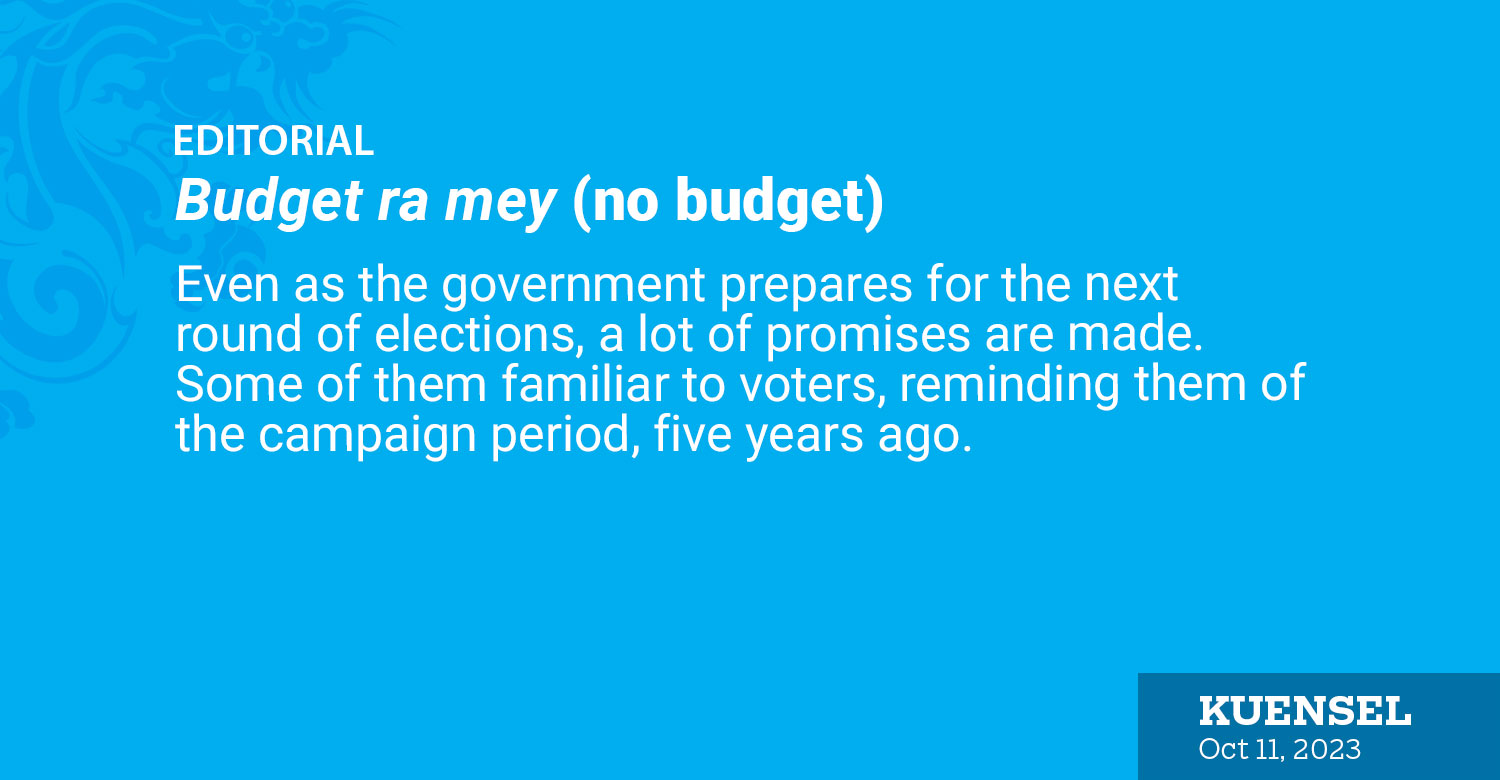Even as the government prepares for the next round of elections, a lot of promises are made. Some of them familiar to voters, reminding them of the campaign period, five years ago.
Maternity allowance programme aimed at supporting the crucial first 1,000 days of life, starting from the conception of the child, salary revision for state-owned enterprises, private sector development are all honey to the ears, only if the government had the authority or the money. There is just over two weeks for the government to make some mark, even if they are construed as populist decisions.
But it will be harder than what they thought. The ground reality, no matter how grand the plans are, are different. There is no money in the government coffer. It is not wrong to say the government is broke going by what people who approached the government with ideas or plans.
No great plans will work if there is no money or the means to invest. In the meantime, the most common word all are hearing and getting used to is no money or no budget. We are sensing that the elected government is frustrated as their plans and ideas are hitting the bureaucratic wall – strong and immovable. The greatest of plans cannot be implemented if there is no budget or the guts to try it.
We are still a developing country even if officially we are about to graduate from the group of least developed countries. The needs and priorities of the people indicate something else. On the ground, the needs are very basic – water shortage both for drinking and agriculture, poor roads even in the capital city, poor services and a huge emigration issue.
Even as the government announces plans, the question is how will they achieve it in the last few weeks of a five-year term. The bigger question is how will a new government change the situation. There are five political parties trying to woo votes with various ideas and plans. The voters, particularly the educated, are convinced that not much can be done just by having a new government or the same government with renewed vigour.
The reason many say is that the economy, believed to be the harbinger of growth, is down if not out. How do we revive the economy? Political parties knew the problem. All the five parties have economic growth at the centre of their plan for the next five years.
Unlike other democracies in the region, issues like political stability, security and harmony are not pressing issues as it was ensured through wise leadership. Our needs are basic and not complicated. Economy, which affects people at all rungs of the society is an important priority. How we ensure voters at all levels and in every sector, government or private, will determine who comes to power.
Unfortunately, the mood today is that there is not much an elected government can do to fulfill its pledges even it is not populist. The excitement could pick up only if political parties could hit the node of voters. “No budget” is an excuse that irritates all sectors beyond the salaried civil servants or rich corporations.


